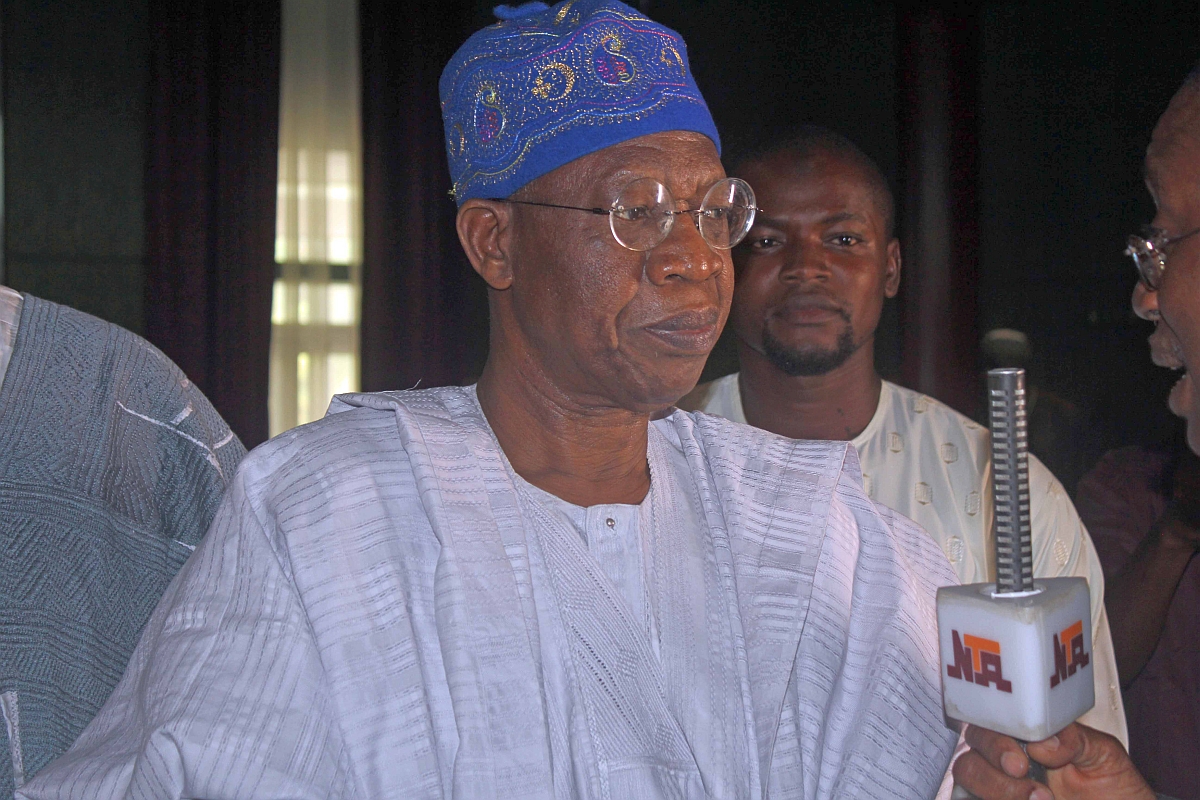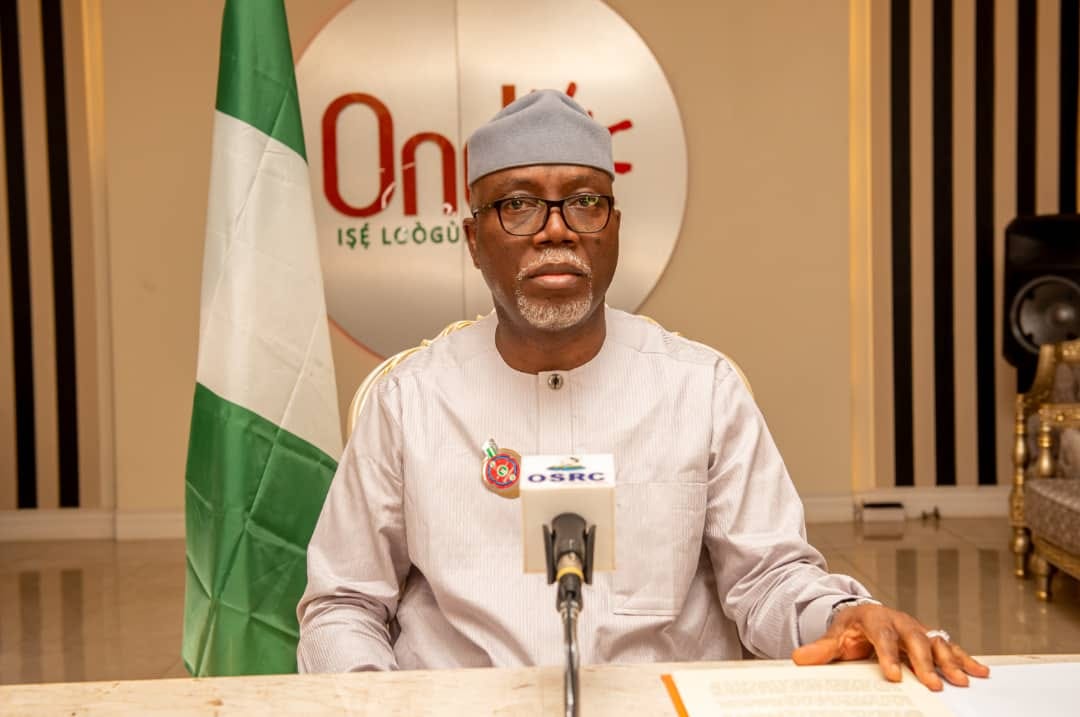- Confusion as Yobe Gov Says No Missing Dapchi Girl Has Returned
Confusion reigned on Thursday as there was conflicting information from several government sources about the fate of students who were declared missing after a Boko Haram attack on Government Girls Science Technical College, Dapchi, Bursari Local Government Area, Yobe State.
It remained unclear whether the terrorists actually abducted any girl or the students scampered into the bush upon sensing an attack from Boko Haram fighters. Also shrouded in confusion is the number of girls missing, and whether any of them had returned or been rescued.
None of these issues was cleared on Thursday even as the state Governor, Alhaji Ibrahim Gaidam, visited Dapchi community, declaring emphatically that none of the missing girls had neither returned nor been rescued by security agencies.
Also speaking on the incident, the Minister of Information and Culture, Alhaji Lai Mohammed, said the federal government was unsure of the situation on the ground, pleading for more time to ascertain the facts of the matter.
“On the issue of the number of missing girls, we cannot give what we are not sure of, until we hear from their parents, we cannot say this is the number. Give us a few more time please,” Mohammed told reporters shortly after he arrived at the school in Dapchi on Thursday afternoon.
Boko Haram had invaded the girls’ only school on Monday night, with no one able to say with certainty if the terrorists made away with any of them.
Unconfirmed reports on Tuesday, however, quoted school sources as saying 94 students were declared missing after an afternoon roll call in the college.
But on Wednesday further unconfirmed reports said 48 of the missing girls had returned to the school even as a statement late evening by the government claimed that the military had rescued an unspecified number of the girls.
“The Yobe State Government hereby informs the public that some of the girls at Government Girls Science Technical College (GGSTC) whose school was attacked by Boko Haram terrorists last Monday have been rescued by gallant officers and men of the Nigerian Army from the terrorists who abducted them,” Abdullahi Bego, the spokesman of the governor said.
“The rescued girls are now in the custody of the Nigerian Army. We will provide more details about their number and condition in due course,” he added.
But Gaidam recanted the statement on Thursday, dismissing it as misleading, a position the police in the state re-echoed.
“I am not able to say categorically that anyone was abducted or not,” said Sunmonu Abdulmaliki, the state police command commissioner.
Speaking to reporters in Dapchi, he said after a roll call at the school on Thursday, only 815 of the 926 students enrolled could be accounted for, leaving a balance of 111.
The military kept mum on Thursday, refusing to join the fray. “We prefer that the police and the state government handle the matter. It’s their turf,” a military top brass that preferred said.
Thursday night, the state government issued a statement apologising for its Wednesday statement, saying it relied on the information it had now found not to be credible.
The statement signed by Bego read: “The public may recall that we issued a statement last night in which we announced that some of the girls at Government Girls Science Technical College (GGSTC) Dapchi who went missing after Boko Haram terrorists had stormed their school last Monday were rescued by officers and men of the Nigerian Army who are currently executing the war against the Boko Haram Insurgents.
“We issued the statement on the basis of information provided by one of the security agencies that is involved in the fight against Boko Haram and which we had no reason to doubt.
“We have now established that the information we relied on to make the statement was not credible. The Yobe State Government apologises for that.
“His Excellency Governor Ibrahim Gaidam was in Dapchi today where he met with community leaders and the Principal and staff of the Girls’ College. The governor also addressed the parents of some of the schoolgirls that are still unaccounted for where he told them to pray and exercise patience as the government and security agencies at all levels continue the work to address the unfortunate situation.
“His Excellency Governor Gaidam has also directed Education Ministry officials and the school administration to work closely with the security agencies to establish the actual number of the girls that are still unaccounted for and to contact parents and the community for possible information that could be useful in the investigation.
“His Excellency Governor Gaidam shares deeply and personally in the grief about the unfortunate event at the Girls’ College and, under his leadership, the Yobe State Government will continue to do everything necessary in partnership with security agencies and the federal government to address the situation.”
President Muhammadu Buhari had on Wednesday condemned the incident, asking the military to take charge of the school to prevent further terrorist harassment of the students.
He also sent a delegation of three ministers, including Mohammed, Brig-Gen. Mansur Dan-Ali (Defence) and Chief Geoffrey Onyema (Foreign Affairs), to visit the troubled community and report back to him.
The delegation visited Dapchi Thursday.
Senate Condemns Resurgence of Insurgency
Reacting to the incident, the Senate on Thursday, condemned what it said was the resurgence of insurgency by Boko Haram as manifested by the attack on Dapchi.
It called on all relevant authorities to rescue the girls and ensure those unaccounted for were found, to avoid another Chibok experience.
Senator Abba Bukar (Yobe APC), raising a motion of urgent public importance, said 46 of the 926 girls are still unaccounted for, with efforts ongoing to determine their status.
“So far, there has been no case of killing. Nobody is sure if it was a case of abduction or some of the girls who ran home have not yet come back. These are yet to be confirmed,” he said.
Senator Hassan Mohammed (Yobe PDP) lamented that under Governor Gaidam, several schools had been attacked.
“In 2013, a secondary school in Potiskum was attacked, where over 70 children were killed. A year after, another secondary school in Mamudu was attacked, where school children were slaughtered. There was another attack in Buni Yadi, where students were attacked. The state university too was attacked and now we have this one,” he said.
He criticised the state government for failing in its responsibility to protect the lives and property of its citizens.
Senator Joshua Lidani (Taraba PDP) contributing to the debate, urged the president to visit the people of the area.
He also urged Buhari to make it a priority to visit areas where people have been attacked and traumatised.
He said: “But the most worrisome aspect was the fact that at times like this, whenever we are faced with this kind of situation, the nation ought to hear from the president. He ought to say something.
“When there were killings in the United States in a school, the President himself went to that school to sympathize with the students and the parents but here all along, we have had this. Since the time of the Chibok girls, we have heard killings, abductions and Mr President ought to sympathise. He ought to utter words of sympathy, he ought to come on television and say one thing or the other. It would bring comfort to those who are in distress. People will have the feeling that the President has them at his heart.”
Presiding, Deputy Senate President Ike Ekweremadu said the clamour that policemen should be deployed to protect all schools, shows that there is a need to explore other options for policing.
He expressed deep concern at the incident.
He said: “We are also aware that the military and the police are overstretched in all ramifications at this period of national insecurity. That is what makes the case a stronger case for another level of policing.
“If you are now asking the military and the police to provide security at all the schools, they cannot have the number to do so. There must be another level of policing to complement the federal government’s security infrastructure in order to be able to secure all parts of Nigeria.”
EU Reiterates Commitment to Fight Terror
The Dapchi incident on Thursday gave the European Union (EU) the opportunity to reiterate its commitment to support Nigeria in the fight against terrorism and other crimes in the country.
The EU, in a statement, expressed its solidarity with the affected families and the nation at large, assuring them that it would continue to work for the rights and protection of girls, adding that the girl child should be given the freedom to shape their future.
It said: “Targeting children and abducting young girls as they seek to attend school is an attack on our common humanity.
“The EU sends its solidarity with the affected families and the people of Nigeria.
“The girls deserve freedom and a chance to shape their own future.
“The EU remains committed to supporting the Government of Nigeria in its fight against terrorism and all forms of criminality.
“We stand resolute to continue our humanitarian and development work, including the rights and protection of girls.”
The statement was said to have brought tears to the faces of parents and relatives of the missing students as the governor could not state the whereabouts of their wards.
Addressing the parents at the District Head’s palace in Dapchi on Thursday, the governor urged the parents to remain faithful as security operatives were still searching for the girls.
He said: “Soldiers have been pursuing the insurgents, although they receive information that the Boko Haram insurgents had passed some areas, but the communities in the areas said they did not spot the girls along with the insurgents.”
He assured them that government and security operatives would not rest on their oars until the missing girls were accounted for.
The waiting parents wept profusely as the earlier news that the girls were rescued turned out to be false.


 Education4 weeks ago
Education4 weeks ago
 News3 weeks ago
News3 weeks ago
 Business3 weeks ago
Business3 weeks ago
 Technology3 weeks ago
Technology3 weeks ago
 Investment4 weeks ago
Investment4 weeks ago
 Investment3 weeks ago
Investment3 weeks ago
 Telecommunications4 weeks ago
Telecommunications4 weeks ago
 Banking Sector3 weeks ago
Banking Sector3 weeks ago





























